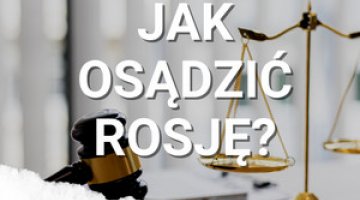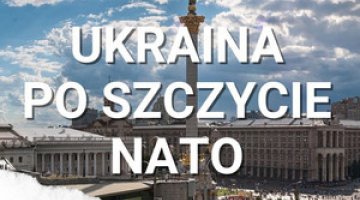Paralysis of anti-corruption institutions in Ukraine
On 17 November, the General Prosecutor's Office of Ukraine initiated an investigation into the head of the National Anti-Corruption Bureau of Ukraine (NABU), Artem Sytnyk, accusing him of disclosing state secrets. Meanwhile on 14 November, it was announced that the head of another key institution, the National Agency for the Prevention of Corruption (NAZK) was alleged to have falsified the results of an audit of the declaration of politicians’ assets, in co-operation with the President’s Administration. On the same day, the Ukrainian parliament also blocked the creation of an anti-corruption court, thanks to the votes of the two coalition parties, the Petro Poroshenko Bloc and the Popular Front. These actions met with sharp reactions in the West. The EU strongly requested the establishment of the court, and in addition the United States made it a condition for the continuation of IMF financial aid to Ukraine.
Commentary
- In Ukraine, there are currently three key institutions responsible for the fight against corruption. After the Revolution of Dignity, due to pressure from Western donors and Ukrainian activists, NABU was created as a special service investigating corruption-based crime in the state administration. NABU provides collected evidence to the newly created Specialised Anti-Corruption Prosecutor’s Office (SAP), which is tasked with drawing up indictments and bringing them before the court. Currently, however, these cases are still being brought before courts which are still unreformed and corrupt. This is why the creation of a special Anti-corruption Court, which would crown the construction of a coherent system for combating corruption in Ukraine, is so important. In addition, 2014 also saw the creation of NAZK, a body subordinate to the government which has the task of verifying the veracity of the annual declarations by employees of the state administration and local self-government of the assets they hold.
- The initiation of proceedings against Sytnyk demonstrates the intensified resistance of the authorities to the expanding activity of NABU (in 2017 detectives from NABU made numerous arrests of politicians associated with Poroshenko and the Popular Front, and initiated legal proceedings concerning the best-known corruption scandals in post-Maidan Ukraine). Against this background, the last few months have seen increased conflict between the General Public Prosecutor's Office, controlled by President Poroshenko, and NABU and the Specialised Anti-Corruption Prosecutor’s Office. It seems that the ruling coalition wants to undermine the credibility of the head of NABU, and possibly to remove him from his position, before the presidential and parliamentary elections scheduled for 2019.
- In the case of NAZK, the information disclosed indicates interference by the President’s Administration in its work. Presidential officials are alleged to have wielded informal influence over which officials were to receive positive or negative verifications. The plausibility of this is indicated by the fact that since the establishment of the Agency, out of over a million declarations, so far full verifications have been carried out in only a dozen or so cases.
- It will only be possible to resume work on the parliamentary act to create the Anti-Corruption Court after parliament withdraws the project from parliament itself and President Poroshenko puts forward his own bill. The President, however, is not interested in any law on an effective anti-corruption court passing through parliament, as evidenced by the obstruction caused by both parties in the coalition, which consistently refuse to cast votes either to pass or withdraw the project. The President and the majority of the Ukrainian establishment are seeking to block the process of creating an effective system to combat corruption in Ukraine, as they think of it as a threat to their own business and political interests.
Tadeusz Iwański, in cooperation with Piotr Żochowski





